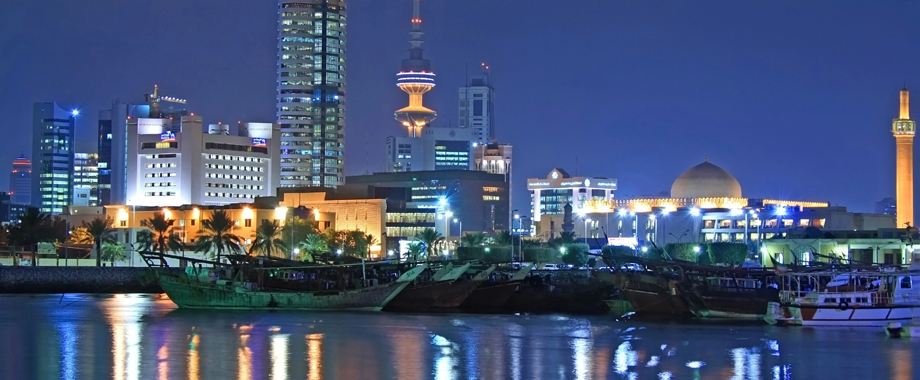Five great things about teaching in Saudi Arabia
We’ve currently got some really exciting positions open in Saudi Arabia, but you might need a little more convincing. Read our top 5 reasons why Saudi Arabia is a great place to teach overseas.
What’s teaching in Abu Dhabi really like?
Laura, a certified teacher from Ontario, Canada, is currently teaching Grade 5 at a boys’ elementary school in Abu Dhabi. Read about her experience so far.
City spotlight: Shanghai, China
As the largest and most developed metropolis in Mainland China and the largest city in the world, Shanghai is sure to dazzle. But don’t be overwhelmed, this City Above the Sea can charm even the most introverted.
Make learning more visual with Socrative
For teachers looking for ways to incorporate technology in the classroom, Socrative is the perfect connective tool.
City spotlight: Shanghai, China
Shanghai is the largest and most developed metropolis in Mainland China and now the largest city proper in the world, with a population of over 24 million people. This might seem overwhelming for some teachers who aren’t used to such big cities, but there are many smaller pockets to make yourself familiar with and to find a niche.
Shanghai is divided into two parts by the Huangpu River. The division is made clear by two separate names for each part: Puxi for West of the river and referring to the older central part of the city, and Pudong for East of the river that includes the newer high rise developments that have cropped up since 1980.
Architecturally, Shanghai leaves no stones unturned. As the home of the second tallest tower in the world and many other colossal skyscrapers, it’s sure to amaze even the most seasoned city goer. But those looking for some Eastern flare will enjoy the East meets West vibe that Shanghai gives off — it’s not just a maze of towering buildings. There are plenty of art deco buildings still standing from the 20s and 30s (one of the largest densities in the world, actually), as well as breathtaking Buddhist temples and Shikumen houses that blend Chinese-style housing with European design elements.
But if it’s the local culinary scene that’s piquing your interest, Shanghai’s reach is international. The restaurants are varied and contemporary, with something for every eater. In Chinese culture, food is the center of social life and everything revolves around it. For the best variety, try the Bund neighborhood.
As for things to do in the city, Shanghai is the last place in the world that you’ll be bored. With an explosive music and club scene, many first class museums and galleries, and plenty of natural sights to enjoy, there is something for every kind of traveler here. If spending your afternoons outside is your thing, there’s the Yuyuan Gardens, a 400-year-old, 5-acre property with 6 main scenic areas and a 50-foot-tall rockery. For a day at the beach, visit the Shanghai City Beach, just at the southern end of Jinshan District, with a 2km stretch of beautiful blue waters. More than just a place to swim, though, the city beach includes opportunities for sail and speed boating, bungee jumping, and kite surfing.
If you’re hoping to experience some history and culture, there are plenty of world class museums and art centers to visit. The Shanghai Museum is a major modern museum, filled with ancient Chinese art and cultural artefacts. The huge bronze exhibit is particularly worth a visit. The Shanghai Propaganda Poster and Art Centre offers visitors a glimpse at uncensored politics and art of Mao-era China.The museum features rotating exhibits including posters, memorabilia, and photos.
And for those teachers just looking to relax and spend some of their hard-earned income, shopping is a favorite pastime for many Chinese, and Shanghai has a particularly luxurious feel. In fact, China makes up 47% of the global luxury goods market. But for those who like their clothing a little more understated, there are plenty of pop-up shops by local designers, busy markets, a great selection of vintage, and trinkets of just about every shape and size.
With a latitude similar to New Orleans or Brisbane, the climate in Shanghai is comparable to these cities. In the summer, temperatures often reach 35 – 36°C (95 – 97°F) with high humidity. In the winter, the high is rarely above 10°C (50°F) during the day.Snow is rare in Shanghai, but the wind chill factor and the high humidity can make it feel much colder than it actually is.
For teachers looking for a unique teach away experience, the “City Above the Sea” is unforgettable. Interested teachers can browse our current teaching positions in Shanghai on our jobs board.
App review: Socrative
Teachers looking for ways to incorporate technology in the classroom, Socrative is the perfect connective tool. With separate apps for teachers and students, it lets teachers engage students and assess the whole class’ understanding through real-time questioning and instant result aggregation.
Features include:
-
Instant feedback: As students submit their answers to real-time questions, the answers populate the teachers screen. This feature can help teachers instantly visualize classroom understanding in order to provide further feedback.
-
Customizable content: Teachers can create their own catalogue of assignments and share them with students directly through the app.
-
Reporting: See the level of understanding in a number of reports including whole-class overview, individual student results, or by question breakdown.
Socrative makes it easier for teachers to check for classroom understanding in order to make the teaching process more fulfilling. To learn more about the app or to download it, visit the Socrative website.
Teach Away case study: teaching in the UAE
Laura has been teaching grade 5 at a boys’ elementary school in Abu Dhabi, about 40 minutes outside of the city, after she was placed by Teach Away. She took some time to sit down with us to tell us about her experience thus far.
Tell us a little bit about your current role:
I teach English, Math, and Science to two classes of grade 5 boys. Boys’ schools start earlier than girls’ schools so I am at school just before 7 am each day, and we work until 1:30 pm three days a week, and stay until 2:45 pm for professional development workshops two days a week. I am responsible for turning in lesson plans to my head of faculty a week ahead of time, preparing any resources I need for my lessons, managing the normal paperwork teachers expect, and attending all professional development sessions each week. I teach six 45-minute periods (three periods with one class, three periods with the other) and I have one 45-minute prep period each day. All schools are different when it comes to what resources and equipment are available to teachers, but my school has an English resource room and every teacher has a computer in their classroom.
My students’ needs vary quite widely because the difference in ability levels is huge. Some of the boys speak English fluently and can write full, fluent paragraphs, while others are still working on letter recognition and are shy about speaking full sentences. Most students are somewhere in between these two extremes. While the ability levels are a big challenge, the biggest challenge of my job is classroom management. Tons of energy goes into planning interesting, engaging, leveled lessons, but on a daily basis most of my energy is focused on keeping the students on task so they will behave and learning can actually take place. The boys can be rowdy so you have to pull out all the stops to keep them interested!
How was the transition to life in Abu Dhabi?
Abu Dhabi life is unbelievably easy to adapt to — there’s no challenge when it comes to adjusting to life here, in my opinion. Because there’s such a large expat community, everything seems pretty easy — things are either done for you or there’s someone around to tell you how to get it done. Once you get used to how things work here (which, for most Westerners, means not being in a rush and not losing your patience over the little things), it’s hard not to feel relaxed. Abu Dhabi life is family-oriented and though everyone works hard, there’s a much better sense of work-life balance. There’s a reason why people move here with a plan of staying 1 – 2 years and then they never go home.
Which of your skills have you developed the most?
Though I’ve always been a pretty flexible person, I’d say my ability to think on the fly and adapt to new situations has strengthened a fair bit. I’ve also really developed my collaboration skills. Working with both the English and Arabic teachers at my school has given me the chance to do plenty of co-planning.
How have you found the level of support from your new employer?
My employer is brilliant. No complaints; they have upheld their end of the contract. I wouldn’t hesitate to renew my contract with them given the chance.
What’s the most valuable lesson you’ve learned about education from your experience abroad so far?
While it’s true that all teachers need to enforce boundaries and be consistent in their practice, I would say it’s especially important for teaching in Abu Dhabi. The most valuable lesson I’ve learned is to be a teacher of my word. My students need to know what to expect, so they believe that I mean what I say, they know I follow through. The incredible rapport we’ve built up is a byproduct of them feeling comfortable in the classroom, because they know what’s expected of them.
What advice would you give to a teacher who is about to move to Abu Dhabi?
Life in Abu Dhabi is beautiful and interesting and fun and exciting. Teaching in Abu Dhabi can be all of those things too, but you really need to prepare yourself for “the worst” so you’re ready for anything. If you think you’re a pro at classroom management, don’t be too sure of yourself. Just be ready. Be ready to ask for help, be ready to learn new things, and be ready to throw your plans out the window and come up with something new because the “something new” might work much better.
You’ll probably get tired of hearing people say you need to be flexible, but that’s the key to being a happy, well-adjusted, successful teacher here. If you can be versatile, if you can laugh off a bad day, and if you can keep your wits about you when it seems completely counter to whatever is going on around you, you’ll probably do just fine.
How happy are you with your decision to teach abroad? Why?
I couldn’t be happier! I have learned so much from my teaching job and from living in the UAE. Teaching abroad has made me more understanding, more compassionate, and a much better storyteller. While I have had some pretty tough days, the overall experience has been the best of my life.
If you’d like to see what positions we have in Abu Dhabi, check out our job board.

